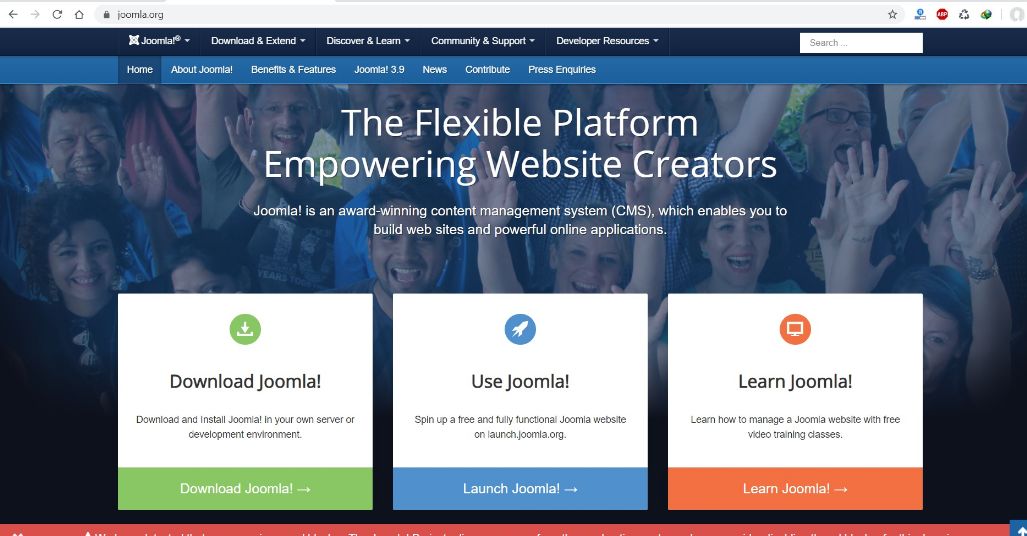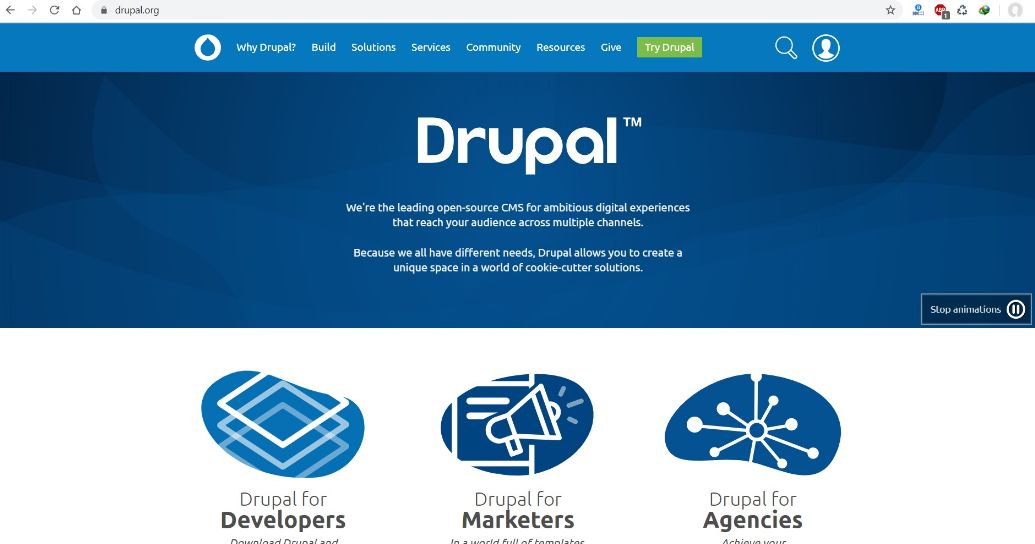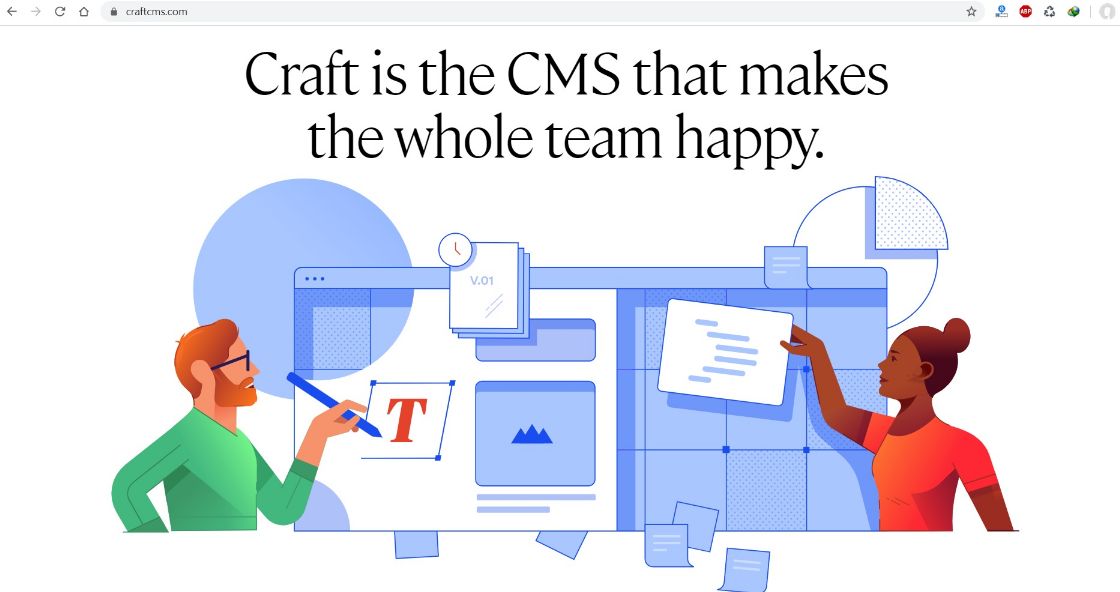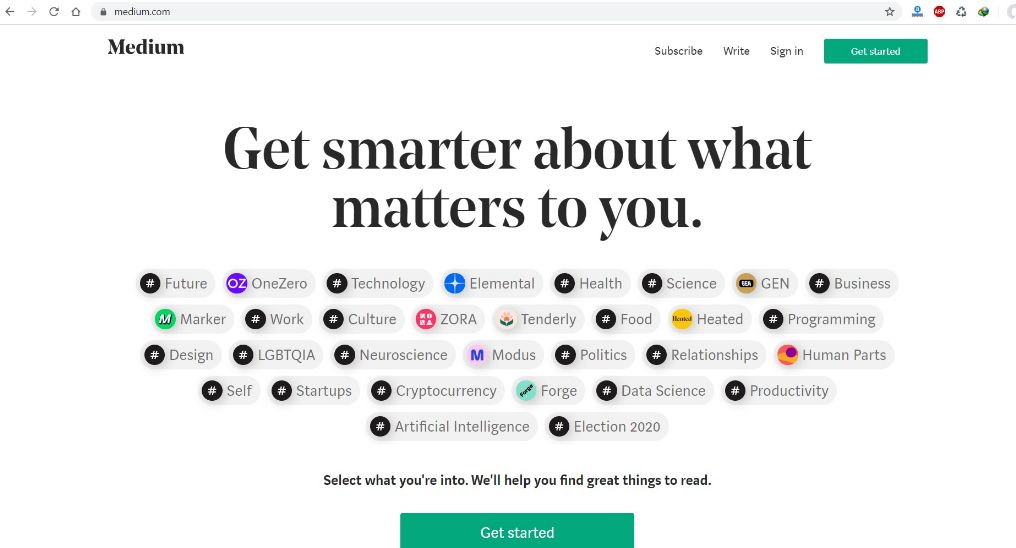There are a large number of WordPress users out there. And little thing that makes it so special: it brags an extraordinary variety of themes and plugins, is adaptable, and extremely simple to use.
However, the free Open Source tool WordPress.org isn’t for everybody as it also accompanies a few flaws as well. In this article, you will learn about circumstances where WordPress may not be the perfect tool and the Best WordPress Alternatives.
1. Joomla

After WordPress, Joomla is the second most mainstream content management system being used. While it has a solid runner up, it’s not even close to the ubiquity of WordPress – WordPress has ~60% piece of the share in the market, while Joomla has 6.7%.
Like WordPress, Joomla is the main software that you can reach out with formats and plugins. The third-party extension network isn’t as huge as WordPress, but you can discover many covering tools. For instance, Joomla has its very own page developers, much the same as WordPress.
Advantages
- It’s a multilingual preloaded. While there are a lot of WordPress interpretation modules, they aren’t baked into the WordPress core.
- Flexible system. Joomla’s modules can be doled out to singular pages or menu items
- Access Level Management. Joomla’s client authorization framework is more strong than WordPress’.
2. Drupal

After Joomla, Drupal is the following most mainstream content manager with a 4.7% piece of the overall industry. It is still widely used by many companies.
In contrast with WordPress, Drupal isn’t so user-friendly. While Drupal offers modules and themes to expand its looks and usefulness, amateurs will battle to make nitty-gritty options in Drupal, as compared to WordPress.
Advantages
- Drupal is better at handling a large amount of data, which makes it more appropriate for some big websites
- Drupal’s Views module lets you show different kinds of content in a more flexible way than WordPress.
- Like Joomla, Drupal gives you more command over client access and consents.
3. Ghost

Ghost is a lightweight content managing framework assembled specifically for blogging and publishing. It’s not anyplace approach as flexible as WordPress – but it’s also making an effort not to be.
If you’re solely hoping to blog and are happy to swear off WordPress’s enormous module plugin marketplace, Ghost is you.
While you can introduce Ghost individually server, Ghost also offers a facilitated form that you can pay for if you’d preferably outsource setup and maintenance support to another person.
Advantages
- The ghost gives a lightweight establishment that is based on the most recent advances.
- Similar to WordPress, you can also find many of the popular themes to customize how your site looks.
4. Craft CMS

Specialty CMS is a less notable content managing framework utilized by some big companies like Netflix and Salesforce.
It’s a significantly more developer-centered content manger since it doesn’t give front-end themes. Rather, Craft CMS solely gives the backend to your site. Then, you can utilize the Craft CMS’ templating framework (powered by Twig) to structure the front-finish of your site.
Advantages
- Flexible content fields that can be added as passage fields to construct the ideal interface effortlessly.
- Designers have unlimited control over how every component is put and requested.
- Not at all like WordPress, clients can see the administrator console just as the site one next to the other alongside the changes they make as they go.
5. Medium

Medium is one of the fast-growing web-based publication tools that enable any clients to make stories and post them all alone close to home webspace. So if you are searching for a blogging alternative for WordPress, this can be a decent choice for you.
It is easy to use, understand and also includes work in long-range informal communication highlights. Even though branding and advancing aren’t the perfect reason at Medium, if you are just hoping to share contents then it is an incredible platform. Obviously here, clients come up short on the adaptability and the power over a specific content or profile.
Advantages
- Bigger range of audience and possible presentation and feedbacks for your work.
- The content management system of Medium is not too bad and simple to work with.
- Deliberately put web-based life sharing components that attract more traffic.





